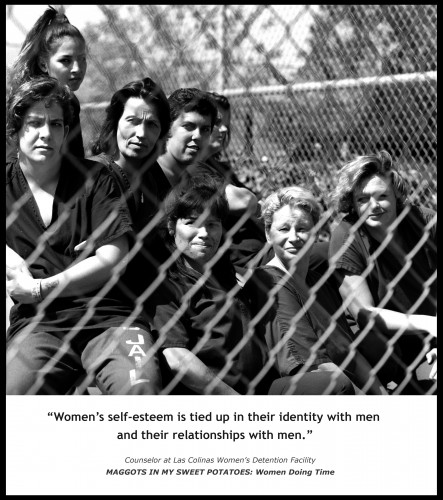 Oxytocin can benefit incarcerated women by reducing the stress one experiences in uncomfortable circumstances. Humane Exposures founder, writer Susan Madden Lankford, contends that this is a normal “clutching together” of the women who end up in prison open dayroom or patio experiences.
Oxytocin can benefit incarcerated women by reducing the stress one experiences in uncomfortable circumstances. Humane Exposures founder, writer Susan Madden Lankford, contends that this is a normal “clutching together” of the women who end up in prison open dayroom or patio experiences.
Oxytocin, sometimes called “the love hormone,” has been shown to aid maternal bonding, increase social recognition, raise trust and empathy within groups, affect generosity and inhibit tolerance to opiates, cocaine, alcohol and other addictive drugs, while reducing withdrawal symptoms. It may also be an effective treatment for autism, by reducing repetitive behavior.
Madden observes that women “really bond together in prison units, over their disdain regarding guards and other staff at the facilities, over their physical conditions, over being mothers deprived of their children and so on. Oxytocin is such a strong hormone that women actually do not fear returning to jail, thereby aggravating our recidivism rates in local and state facilities,” she notes. There is evidence that oxytocin may actually aid in increasing women’s health while they are incarcerated.
Dr. Shelley E. Taylor, a research professor at the UCLA Psychology Department, [please link to: has written:
Socioemotional resources, including optimism, mastery, self-esteem and social support have biological and psychological benefits, especially in times of stress. Our research program of the last 25 years has explored these resources and documented their many benefits, and, as such, attests to the powerful ability of the human mind to construe threatening events in ways that are protective of health.
“Our current research assesses whether oxytocin acts roughly as a social thermostat that is responsive to the adequacy of social resources, that prompts affiliative behavior if those resources fall below an adequate level and that reduces biological and psychological stress responses, once positive social contacts are reestablished.
Female rats given oxytocin antagonists after giving birth do not exhibit typical maternal behavior. In contrast, virgin female sheep show maternal behavior toward foreign lambs upon cerebrospinal fluid infusion of oxytocin, which they would not do otherwise.
Taylor adds:
There is some evidence that oxytocin promotes ethnocentric behavior, incorporating the trust and empathy of in-groups with their suspicion and rejection of outsiders. Furthermore, genetic differences in the oxytocin receptor gene have been associated with maladaptive social traits such as aggressive behavior.
Because oxytocin is destroyed in the stomach, it is generally administered by nasal spray. Several female prison medical staff have been experimenting with oxytocin, and the results are favorable so far.









